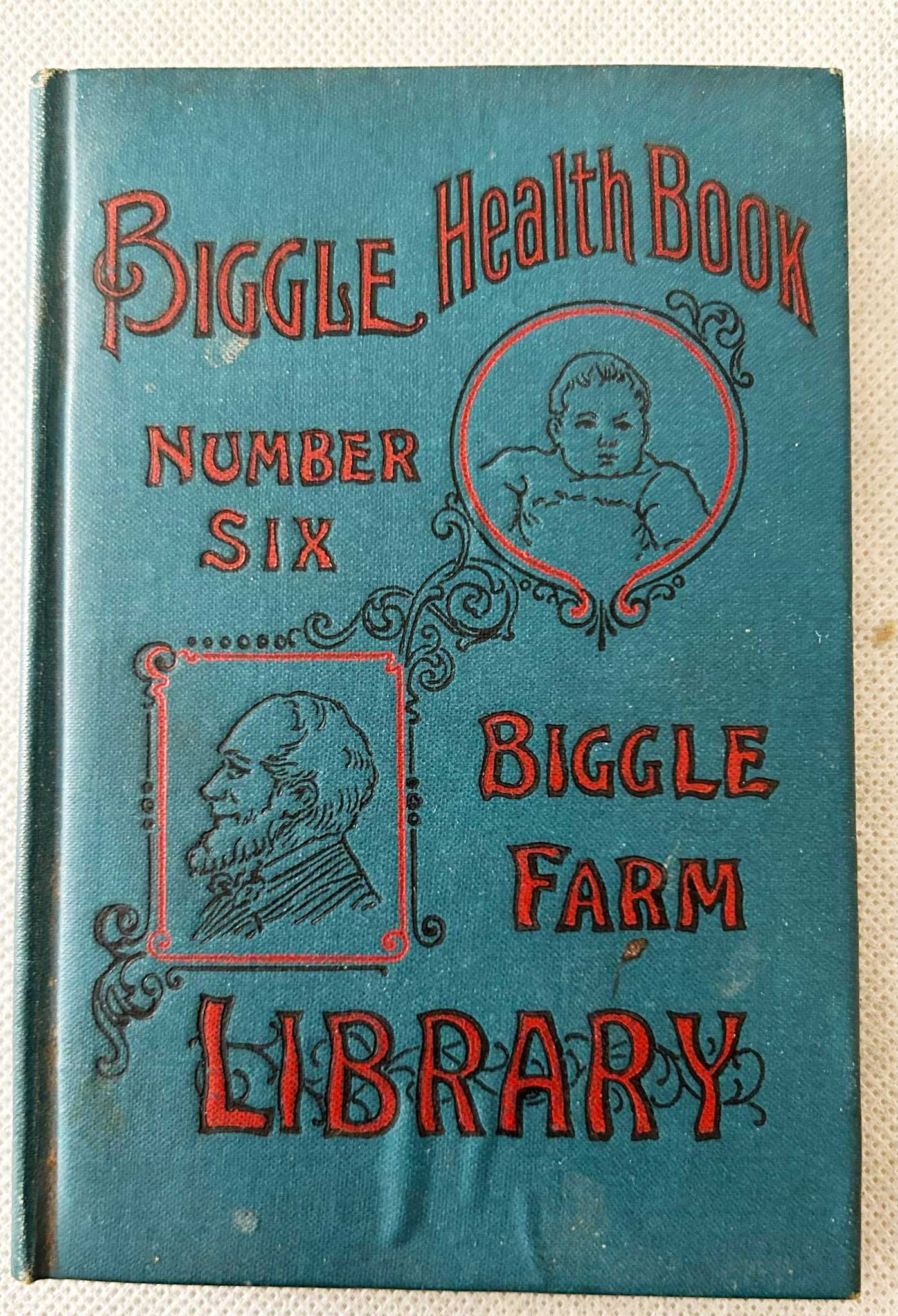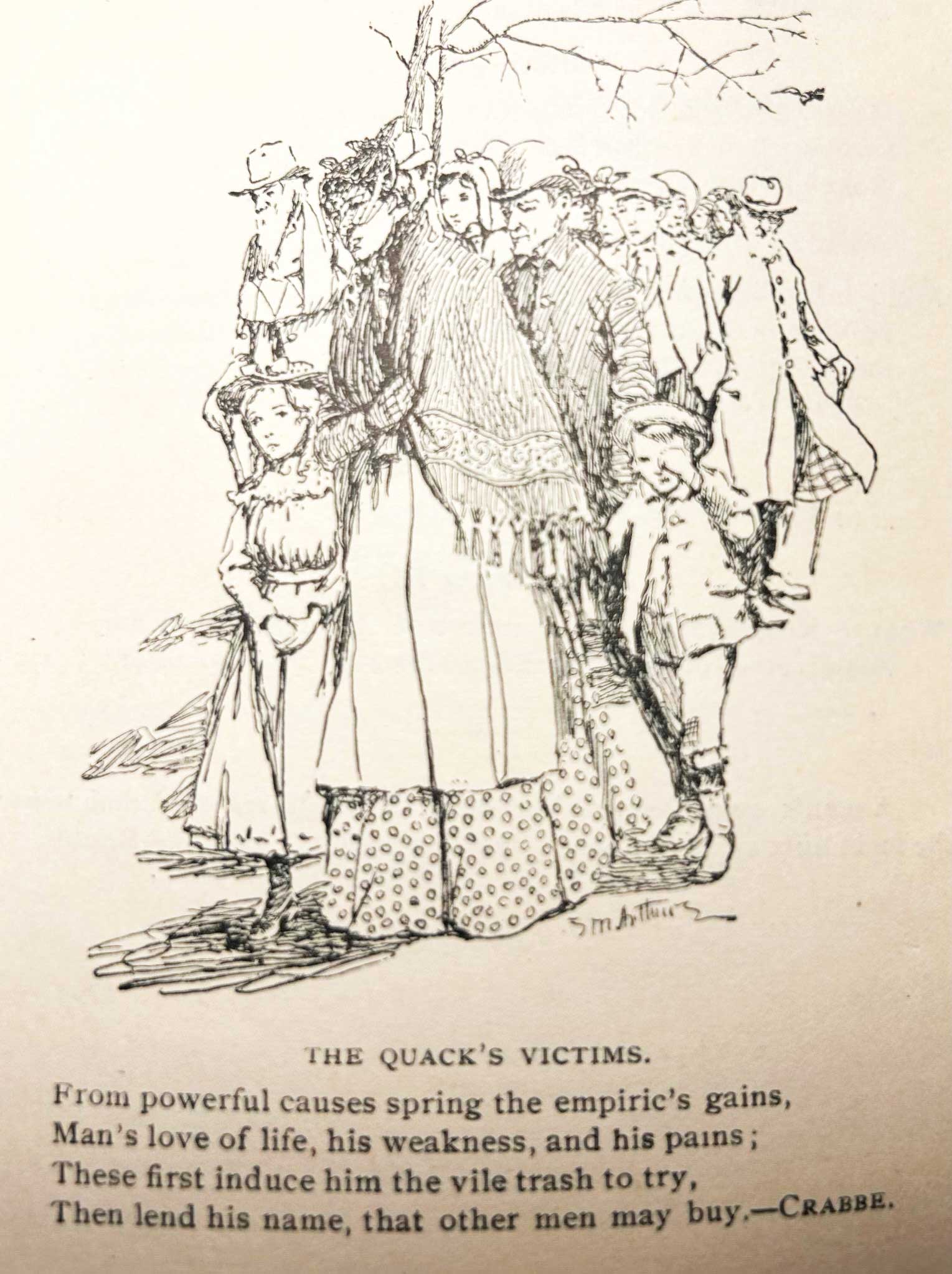May 2023
Vintage Discoveries
1900 ‘Health Book’ advised rural families what to do before the doctor comes
by Ken Weyand
Wealth of healthy living advice in 1900
A small hardbound book, part of my family’s accumulation of “old stuff,” contains a wealth of healthy living advice in 1900 for rural folks who hoped to avoid the expense and bother of a doctor’s visit. It was one of many books written by Jacob Biggle, a Pennsylvania farmer, whose topics included a variety of agricultural subjects, including gardening, fruit orchards, and beekeeping.
The tiny book was truly “pocket-sized,” measuring only about four by five and a half inches in size, and only about a half-inch thick. But its 181 pages were filled with suggestions for keeping one’s family healthy. While not a doctor, Biggle stated in the preface that he had been “kindly prompted by a personal friend who is a physician high up in the ranks of his profession.” He further insisted there was “no quackery whatever” in his work, but hinted that there were similar works published by quacks that while free, are “still more costly if the advice is followed.”
Biggle’s publisher was Wilmer Atkinson, a Quaker farmer near Philadelphia who specialized in rural subjects. In 1877 he began publishing the Farm Journal, a magazine aimed at his rural neighbors in the Philadelphia area. The Biggle book likely was published at least partly as a subscription inducement, which may be how my folks acquired it. As a youngster, I read the Farm Journal, which is still being published.
Although many of Biggle’s advisories still make sense today, one page included a series of warnings for parents hoping to avoid the dreaded doctor visit, including: “don’t box a child’s ears, don’t allow children to eat heavy suppers, don’t lift the child by the head to make fun,” and “don’t allow a child to sniff; every child two years old can blow its nose.”
The book continues, with chapters ranging from “hints for the stout and for the thin,” to the often-cited ailment from that era: “consumption,” which Biggle advised can often be prevented by “spending as much time as possible out-of-doors,” and by “slow, deep breathing.”
Biggle suspected outdoor privies, common at the time, as being the source of many diseases, and listed various ways for keeping them safe. Cisterns that provided drinking water were another problem. His advice also included ways that a “dust bin” should be constructed to keep the house sanitary and its air freshened.
For preventing health problems, Biggle advised keeping remedies on hand, including absorbent cotton, old linen, and sticking plaster for poultices; boric acid and sweet oil for cuts and burns; and lime water for indigestion. He also advised keeping an atomizer, hot water bag, a clinical thermometer, and a fountain syringe handy.
For farm families, who usually saw doctors only in emergencies, the book’s advice undoubtedly proved valuable. The book was published in an era when physicians made house calls – usually when their patient’s medical needs were critical. Often the doctor had been summoned by a “party line” telephone call, overheard by the patient’s neighbors.
Online sites offer the book from $5 to $10, depending on condition. Many other Biggle books also are available from several sources.

Biggle Health Book
Biggle Health Book

The Quack's Victims
The Quack’s Victims
Ken Weyand is the original owner/publisher of Discover Vintage America, founded in July 1973 under the name of Discover North.
Ken Weyand can be contacted at kweyand1@kc.rr.com Ken is self-publishing a series of non-fiction E-books. Go to www.smashwords.com and enter Ken Weyand in the search box.

